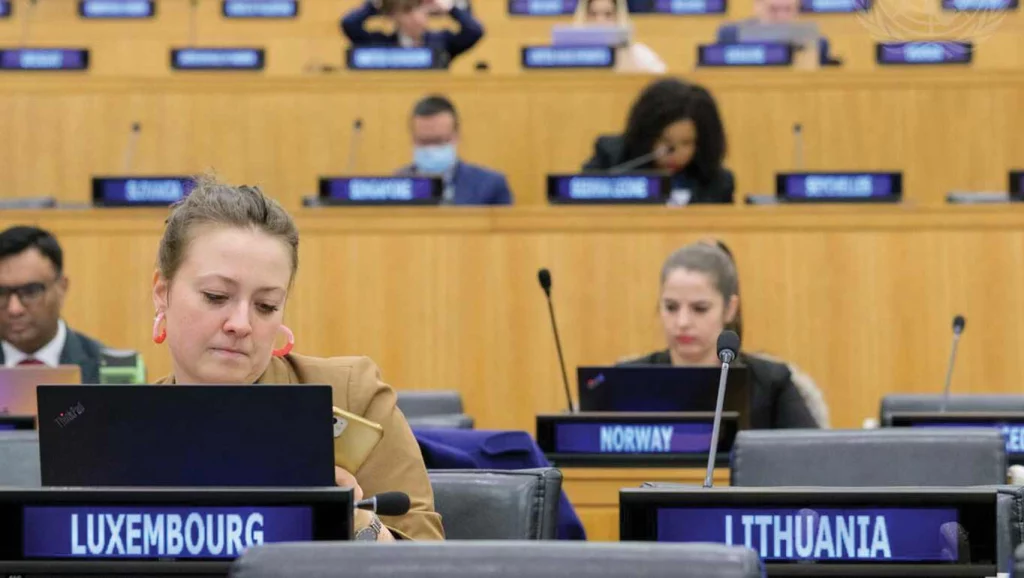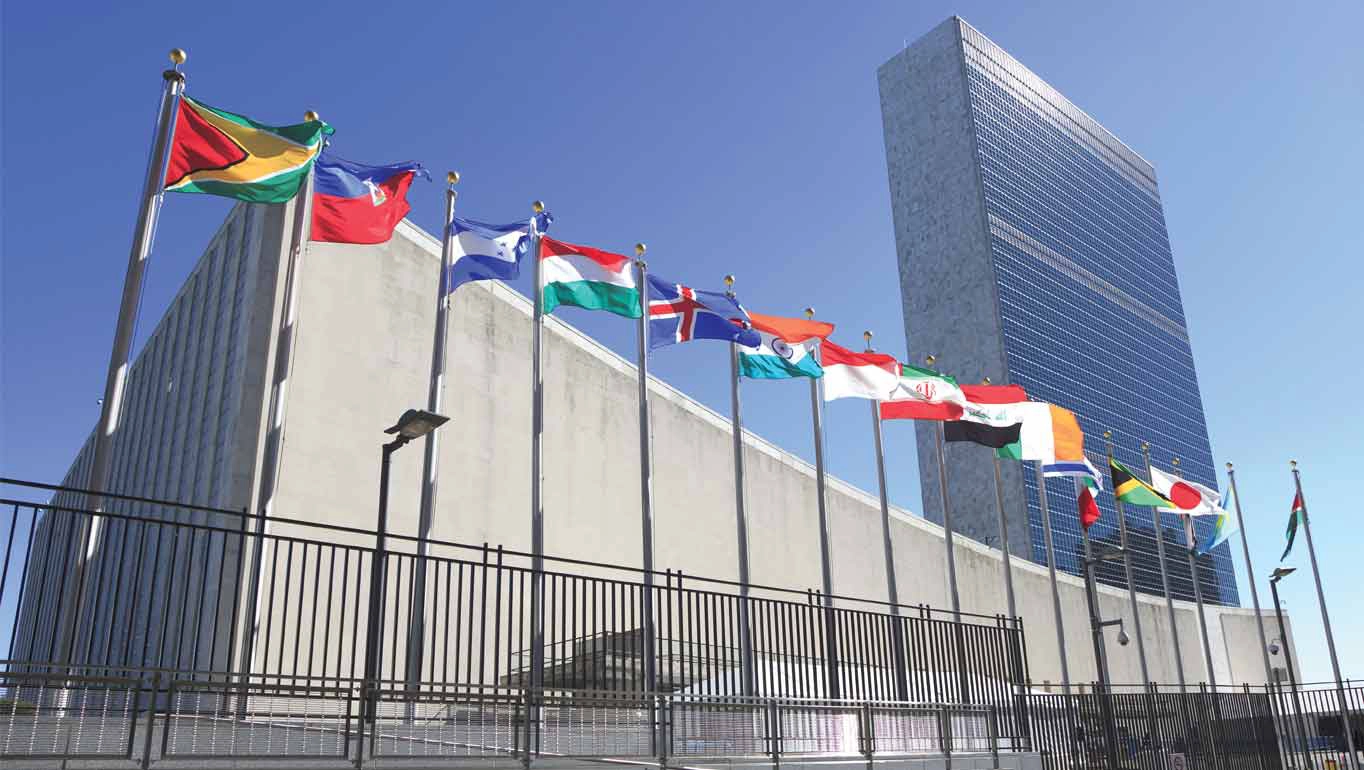When the high-level segment of the General Assembly begins September 19, over 150 world leaders are expected to arrive in New York on their annual political pilgrimage to address the United Nations.
Created in 1945 following the devastation caused by World War II, the 78-year-old world body and its affiliated organs, including the 15-member Security Council, were mandated with one central mission: the maintenance of international peace and security.
Nevertheless, the seriousness of the UN’s far-reaching mandate has been tempered by occasional moments of levity which have rocked the Glass House by the East River with laughter. The UN is a rich source of legendary stories and anecdotes, both real and apocryphal, originating in the General Assembly, the Security Council, and the UN’s watering hole, the delegate’s lounge.
When John Bolton was US Ambassador to the UN (2005-2006), he notoriously remarked: “There’s no such thing as the United Nations. If the UN Secretariat Building in New York lost 10 stories, it wouldn’t make a bit of difference.” The punchline, however, came from a New York Times columnist who said Bolton would do better as an urban planner than a US diplomat.

An oft quoted remark by a Peruvian diplomat, back in the 1960s, is still relevant, particularly in the context of a sharply divided Security Council. Dr. Victor Andres Belaunde of Peru characterized the United Nations as an institution that survives only at the will and pleasure of the five big powers. Simplifying his argument in more realistic terms, he said: “When two small powers have a dispute, the dispute disappears. When a great power and a small power are in conflict, the small power disappears. And when two great powers have a dispute, the United Nations disappears.”
A former US ambassador to the UN once provided an amusingly lighthearted definition of diplomacy: 97 percent alcohol, 2 percent protocol and one percent Geritol, a multi-vitamin drink probably meant to energize negotiations. Nonetheless, diplomacy at the UN is much more than socializing. During an interview with a journalist, a Deputy Prime Minister of a Southeast Asian nation was asked about the leading newspapers in his country. “We don’t have any leading newspapers,” he said, “because all our newspapers are misleading.”
Meanwhile, a security officer once recalled an incident where the Prime Minister from an African country, addressing the General Assembly, was heckled by a group of African students. As is usual with hecklers, the boisterous group was taken off the visitor’s gallery and banned from entering the UN premises. About five years later, however, one of the hecklers returned to the UN —this time, as Foreign Minister of his country— to address the world body.
When US President Donald Trump addressed the General Assembly, for the first time, back in September 2017, he lashed out at North Korean leader Kim Jong-un calling him “the rocket man on a suicide mission” and threatening to “totally destroy” North Korea. The biggest joke, however, was later directed at Trump, who was known for his blundering ignorance of international politics. (“Is Nipple (Nepal) and Button (Bhutan) part of India? And is UK a nuclear power?”).
According to an anecdote circulating in the UN’s delegate’s lounge, Trump was rehearsing his speech when he apparently asked one of his aides whether the North Korean leader was related to the UN. Asked why, Trump remarked: “Isn’t he called Kim Jong-UN”? So goes the story.
Thalif Deen, who authored the book from which the excerpts above are from, is Senior Editor at Inter Press Service (IPS) news agency, an ex-UN staffer and a former member of the Sri Lanka delegation to the General Assembly sessions. A Fulbright scholar with a Master’s Degree (MSc) in Journalism from Columbia University, New York, he shared the gold medal twice (2012-2013) for excellence in UN reporting awarded by the UN Correspondents Association (UNCA).



